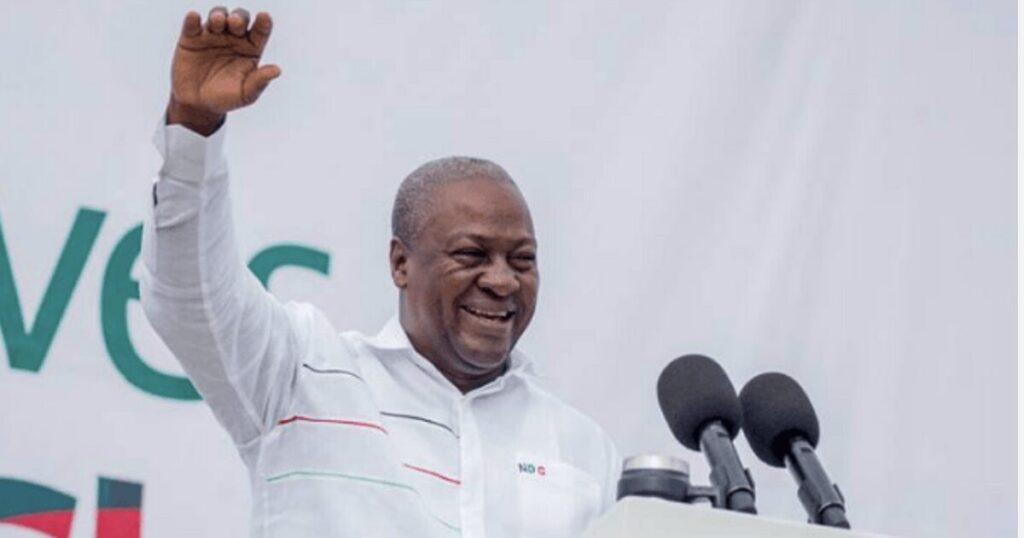Former President John Dramani Mahama achieved a remarkable comeback victory in Ghana’s presidential election, marking a significant shift in the country’s political landscape. The election results appear to reflect voter dissatisfaction with the New Patriotic Party (NPP) and its handling of the ongoing economic challenges.
Vice President Mahamudu Bawumia, the NPP’s candidate, conceded defeat on Sunday, acknowledging widespread frustration over rising living costs and economic instability. His concession followed Saturday’s election, which ended the NPP’s eight-year tenure under President Nana Akufo-Addo.
The NPP’s time in power was marred by high inflation, a debt default, and the worst economic downturn in years, setting the stage for Mahama’s successful return. Previously president from 2012 to 2017, Mahama had faced defeat in both the 2016 and 2020 elections before securing this decisive victory.
“The people of Ghana have spoken, and they have chosen change. We humbly accept their decision,” Bawumia stated during a press conference alongside party officials. In a swift gesture, Bawumia called Mahama to congratulate him, even as official vote tallies were still being finalized.
Supporters of Mahama’s National Democratic Congress (NDC) took to the streets of Accra, celebrating with horns, flags, and chants of victory. Although Mahama has yet to address the nation, he confirmed Bawumia’s congratulatory call on his social media account, describing his win as “emphatic.”
The economy played a central role in this election. Ghana, a leading gold producer and the world’s second-largest cocoa exporter, recently faced a financial crisis that led to a default and currency devaluation, culminating in a $3 billion bailout from the International Monetary Fund (IMF).
NDC spokesperson Sammy Gyamfi stated that the party’s internal reviews indicated Mahama secured 56.3% of the vote, compared to Bawumia’s 41.3%. Meanwhile, election officials reported that regional results were still being collated, with official tallies expected by Tuesday.
Since the return to multi-party politics in 1992, Ghana has been known for its democratic stability, with power alternating between the NPP and NDC. This election, however, proved challenging for the NPP, which campaigned under the slogan “Break the 8,” aiming for an unprecedented third term. Despite some signs of economic recovery, including reduced inflation and stabilizing macroeconomic indicators, voter dissatisfaction remained high.
Mahama’s victory signals a renewed mandate for his leadership, despite lingering criticism of his previous administration’s financial challenges and frequent power outages. His return to power underscores the electorate’s demand for change amid persistent economic struggles.
